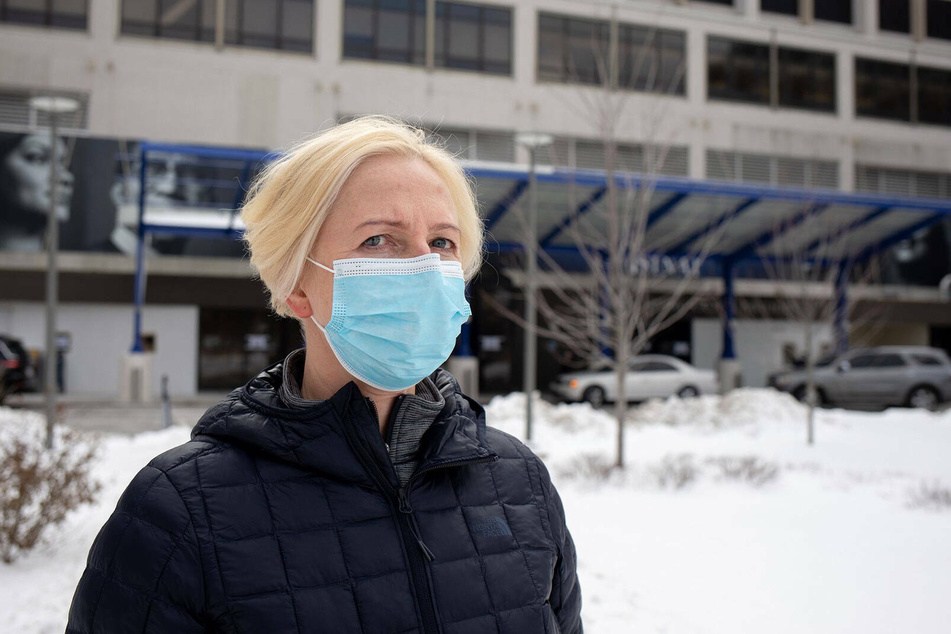Illinois wants to make it easier for sexual assault survivors to seek care
Chicago, Illinois - It’s difficult enough to walk into an emergency room after a sexual assault, and it might not take much to make a survivor reconsider that decision.

For some, one fear might be that someone in their life will find out about the crime by seeing paperwork from a hospital exam.
This could scare rape survivors for many reasons, from shame to fears the person who assaulted them could find out they sought help, potentially triggering a criminal investigation. Although survivors legally cannot be held financially responsible for rape exams, in Illinois, private insurance can be billed, which could mean an assault inadvertently disclosed to someone through, for example, insurance records.
Proposed state legislation would provide a way to let rape survivors opt out and avoid this.
"I hope this encourages more victims to feel comfortable going to the emergency room and having that (Sexual Assault Nurse Examiner) exam," said state Sen. Julie Morrison, who sponsored the legislation.
Illinois is one of few states to require that private insurance be billed for a medical forensic exam. Patients who do not have insurance still do not have to pay for services; health care facilities submit a request for reimbursement to the Department of Healthcare and Family Services.
But advocates say this can create situations where a rape survivor might be hesitant to go ahead with an exam if they feel the insurance policy holder – a parent or a spouse, for example – will find out.
Morrison said the bill was a response to issues raised by advocates and health care workers. "It does hopefully provide a little bit more safety for the victim and gives, usually, her a little bit more peace of mind," she said. "It’s got to be pretty traumatic to go through this procedure and then have to worry about, is dad or my husband or whoever going to see this, and are they going to know?"
She added, "It could just be a concerned parent, but a young woman might not want to reveal what happens to her."
Removing a barrier to care

The bill would allow a sexual assault survivor who is not the primary insurance policyholder to opt out of having their insurance billed "in a situation in which a concern for safety or confidentiality exists."
"Mostly the scenario that we have in mind, women who are in abusive relationships whose husband is the primary person insured," said Dr. Monika Pitzele, an emergency medicine physician in Chicago. "The second scenario is college students under parents’ insurance."
Pitzele serves on the Sexual Assault Medical Forensic Services Implementation Task Force, representing the Illinois College of Emergency Physicians.
Through that work, she’s heard others mention stories of "terrified" patients who felt their life might be in danger if the partner finds out, she said.
"I think it would remove the barrier, the hesitation of presenting for care, and later make them safer coming back home, because this partner would never know that they went for evaluation," Pitzele said.
A letter to lawmakers from a coalition of groups including nurses, advocates, and the Illinois College of Emergency Physicians said the current practice creates a barrier to care in cases such as a domestic violence seeking emergency care or a young survivor who doesn’t want their parents to know.
"These survivors might not seek medical services because their privacy and confidentiality cannot be guaranteed," the letter said.
The legislation would also increase the reimbursement to hospitals for rape exams, something advocates say could lead to an improvement in care.
Administering a rape kit can take hours and involves evidence collection. In 2018, Illinois passed a law requiring Illinois hospitals to have nurses who are trained to treat victims and administer rape kits. This training can take months to ensure they are attuned to signs of trauma and the detailed work of evidence collection.
Boosting reimbursement rates could help hospitals provide the time and training for sexual assault care, advocates said.
Cover photo: 123RF/archnoi1
